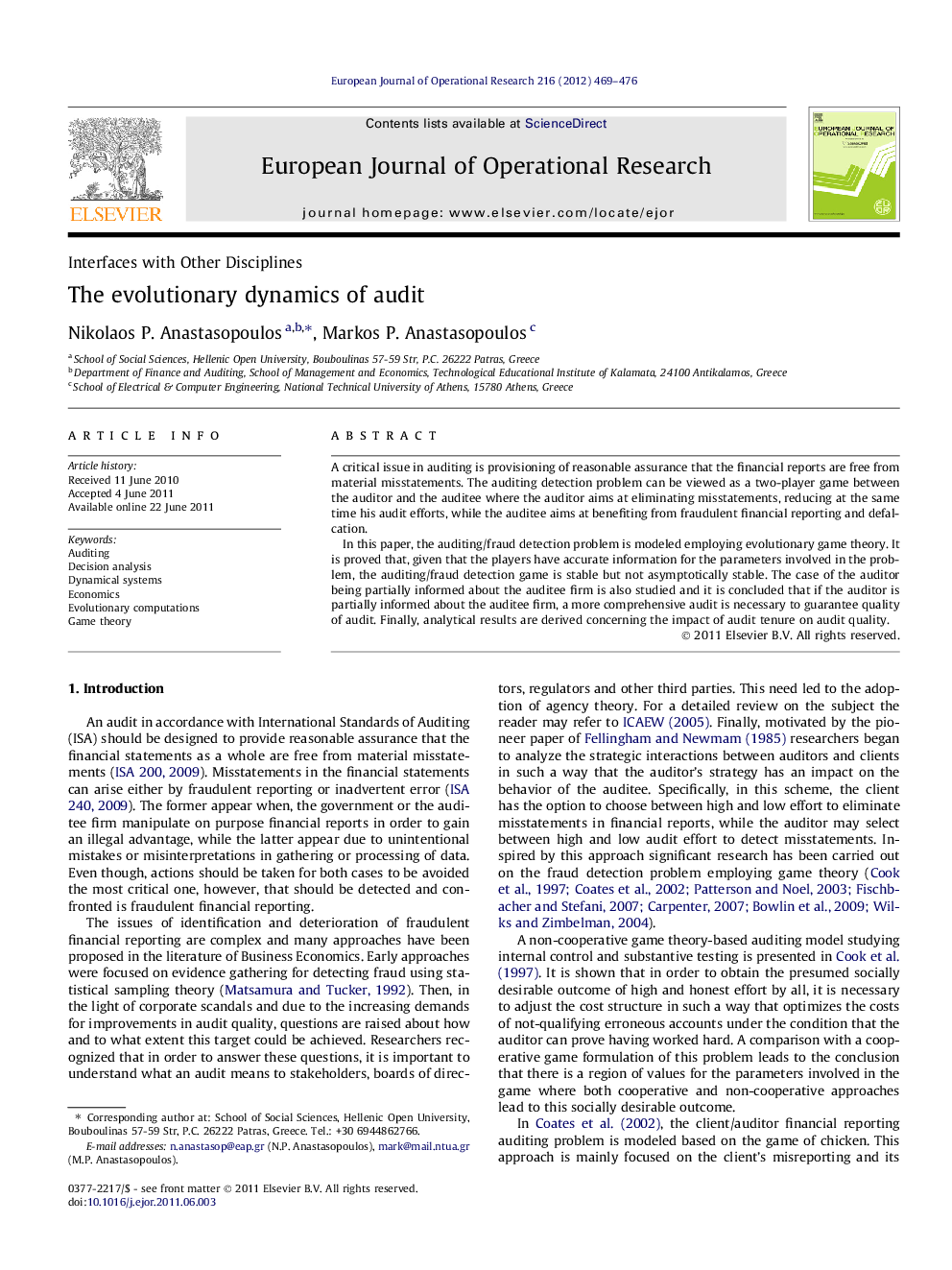| Article ID | Journal | Published Year | Pages | File Type |
|---|---|---|---|---|
| 480185 | European Journal of Operational Research | 2012 | 8 Pages |
A critical issue in auditing is provisioning of reasonable assurance that the financial reports are free from material misstatements. The auditing detection problem can be viewed as a two-player game between the auditor and the auditee where the auditor aims at eliminating misstatements, reducing at the same time his audit efforts, while the auditee aims at benefiting from fraudulent financial reporting and defalcation.In this paper, the auditing/fraud detection problem is modeled employing evolutionary game theory. It is proved that, given that the players have accurate information for the parameters involved in the problem, the auditing/fraud detection game is stable but not asymptotically stable. The case of the auditor being partially informed about the auditee firm is also studied and it is concluded that if the auditor is partially informed about the auditee firm, a more comprehensive audit is necessary to guarantee quality of audit. Finally, analytical results are derived concerning the impact of audit tenure on audit quality.
► The auditing/fraud detection problem is modeled employing evolutionary game theory. ► The auditing/fraud detection game is stable but not asymptotically stable. ► If the auditor is partially informed for auditee firm, a comprehensive audit is necessary to guarantee quality of audit. ► Analytical results are derived concerning the impact of audit tenure on audit quality.
